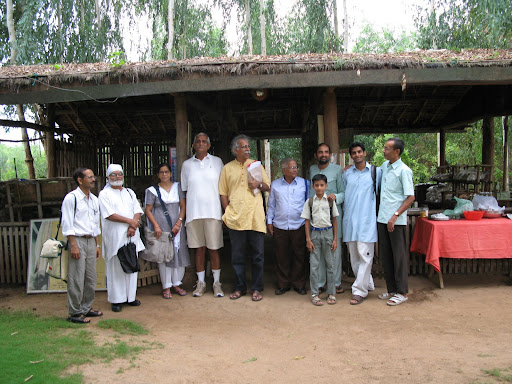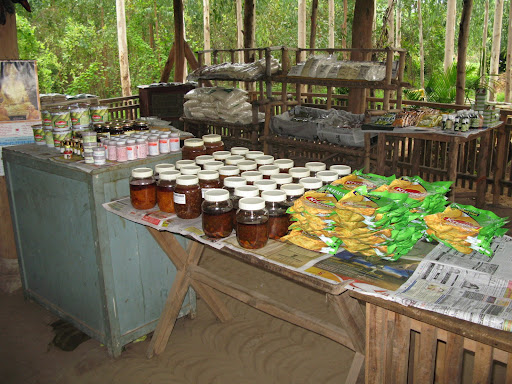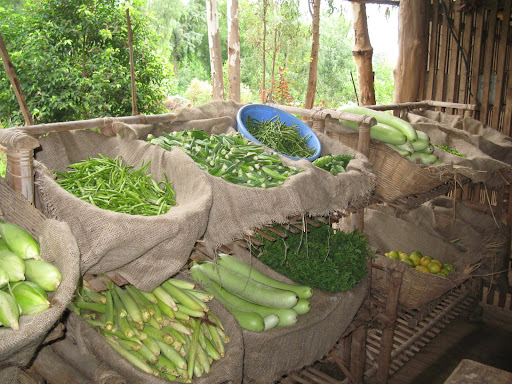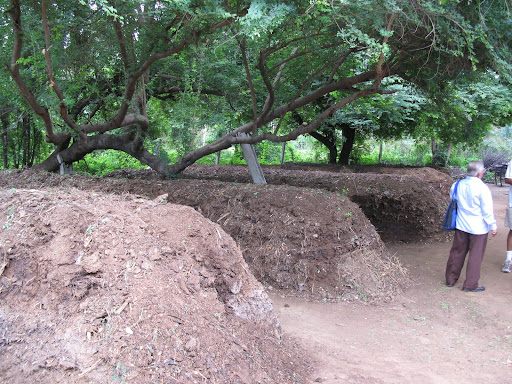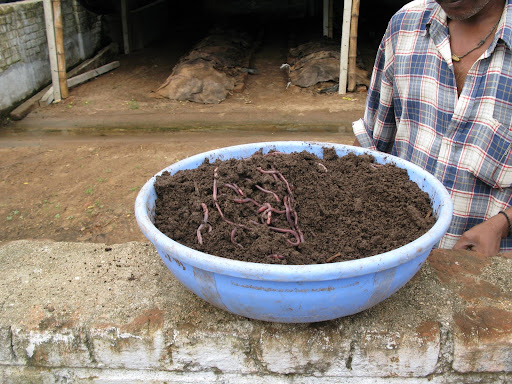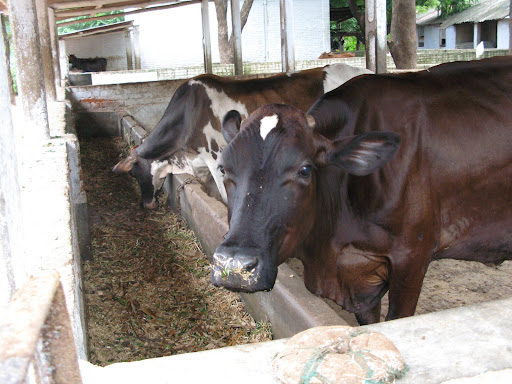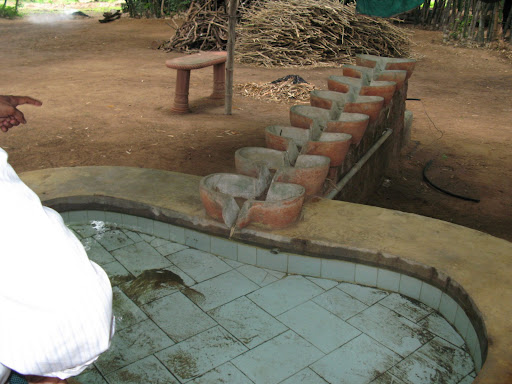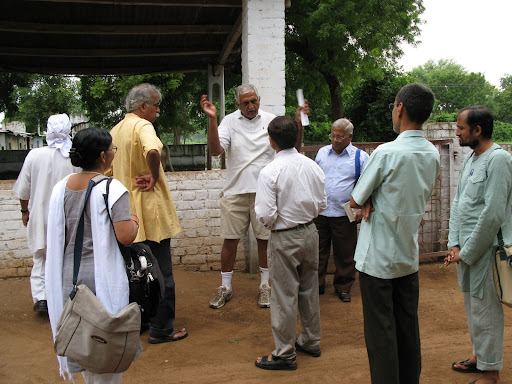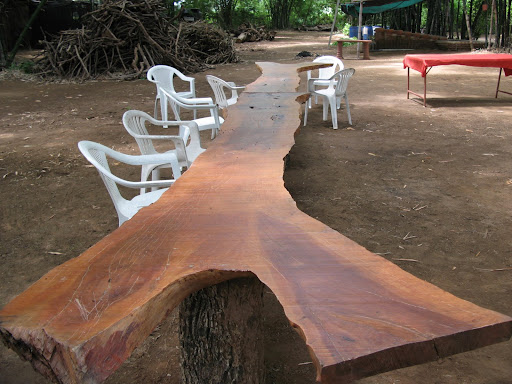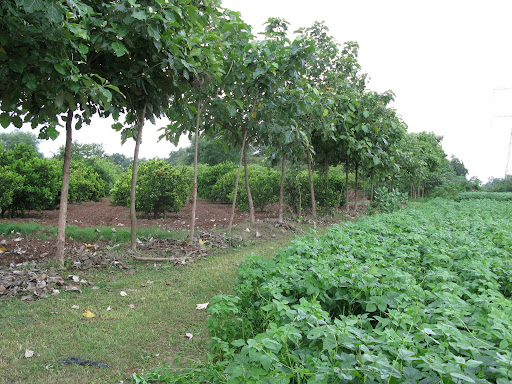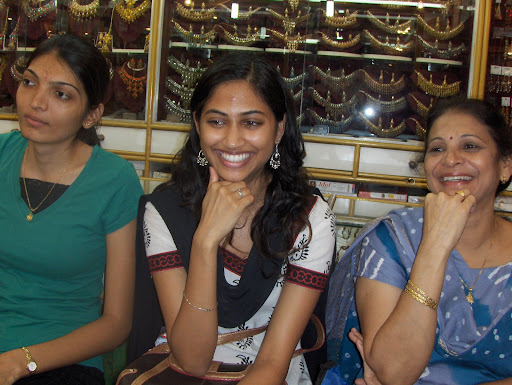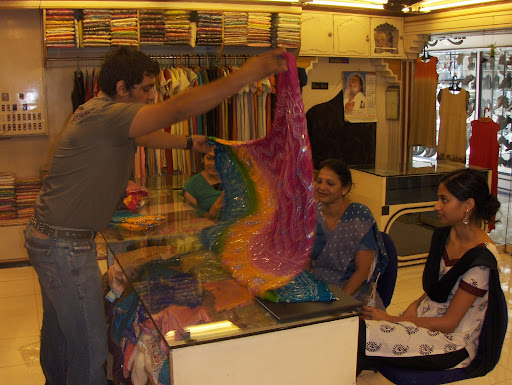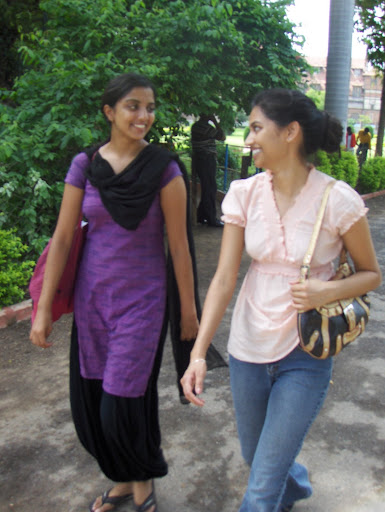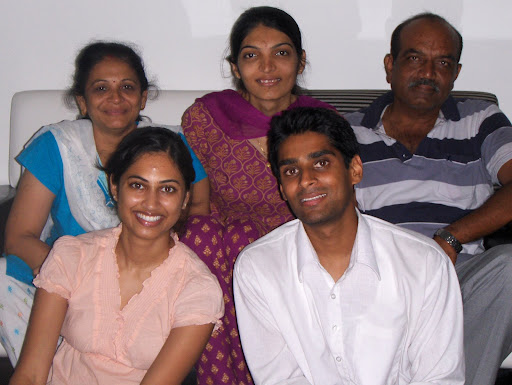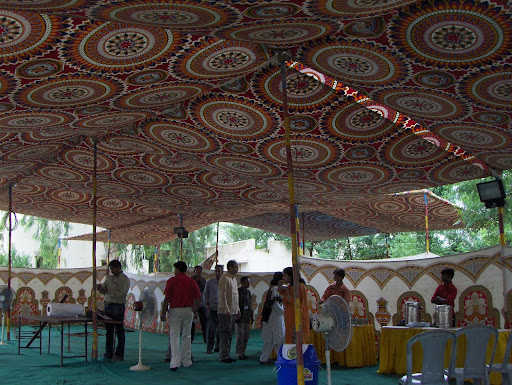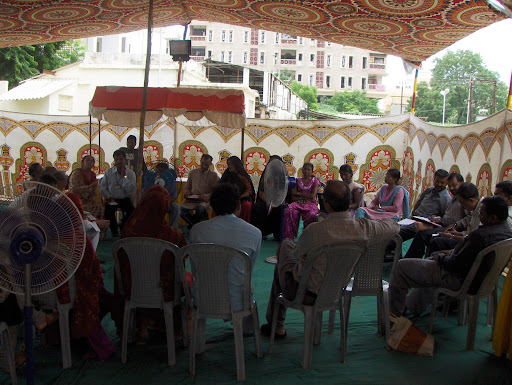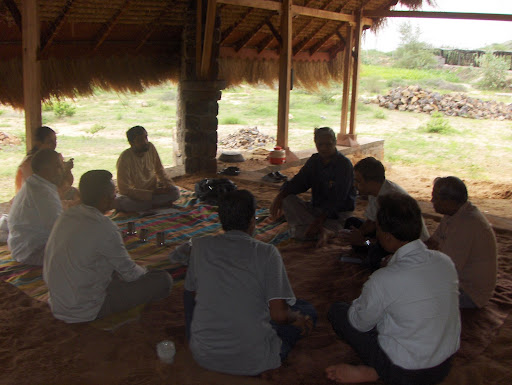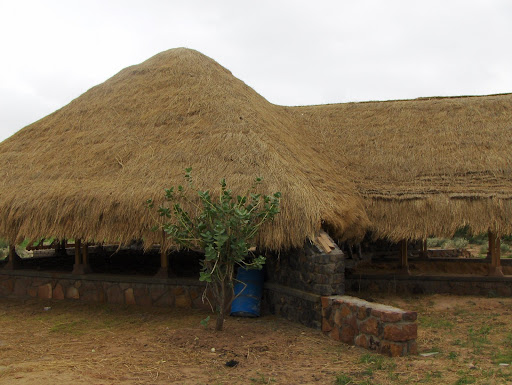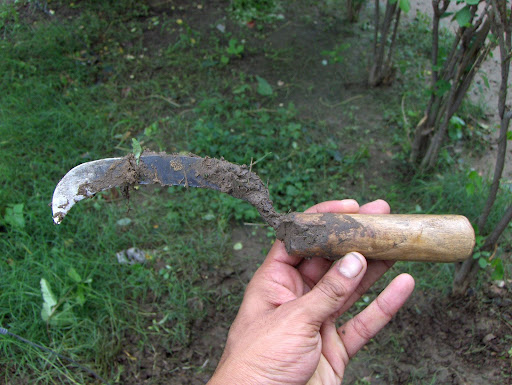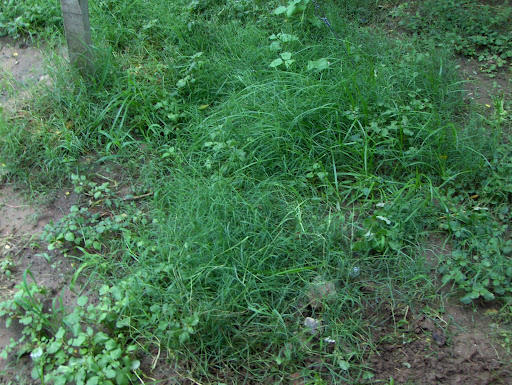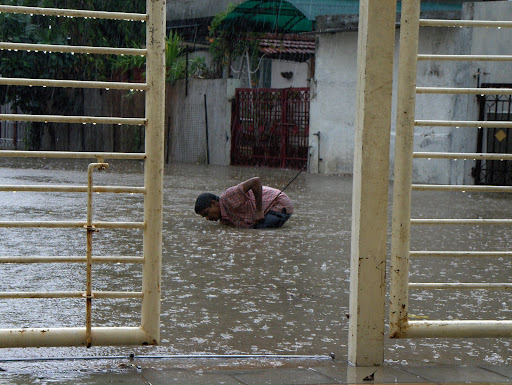I spent the last three days with Kapilbhai in a remote rural village called Dheduki. It is about 80km away from Rajkot. To get there, we took a "luxury" bus from baroda towards Rajkot, and got off in a truck stop area where there were a bunch of shops selling pottery, supplies, and food. From there we got onto the back of a truck with a bunch of rural people and headed down a road on a bumpy ride for about 45 minutes. During the ride Kapilbhai gave me some of the
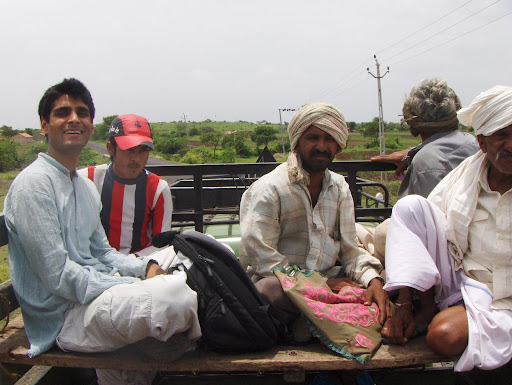
background on Dheduki and what we would be doing there. The area is 95% subsistence agrarian. The farmers have plots of 2-4 acres and farm mostly BT cotton. They are heavy into chemical agriculture, mostly because it is by far the most profitable. Kapilbhai doesn’t push for organic with the farmers because there simply is no scope for them to convert their land, both in terms of knowledge and money.
He told me we would be staying with two social workers, Chetanyabhai and Sonalben, old friends of his. Both were college educated and came to Dheduki 20+ years ago and started social development programs there and with 11 surrounding villages. Their work turned into an organization, Lok Mitra (“Friends of the People”), which carries out programs currently. They work with children in arts and crafts programs and even have a computer that the kids partially funded through selling their crafts in market field trips that Lok Mitra organizes for them. Some kids recently got back from a trip to Tamil Nadu. Besides child programs, Lok Mitra also supports the farmers with agricultural development, including water management projects like building check dams and farm ponds to store water. The agriculture there is extremely dependent on rainfall.
Kapilbhai has been working with Lok Mitra to help the farmers with advice and support for three years. He comes regularly to walk in the locality and stop by at the farms, chatting with the farmers about their problems, concerns, successes, failures, etc. This time I would be walking along with him.
Needless to say it was a phenomenal experience. Getting to see the life of these farmers, hear their stories, see them work, was great. Although I didn’t do much talking, the times that I did talk were highlighted by the farmers amusement that someone from America had come all the way to their farm to meet them.
There is so much to say about the experience, here is a description of the trip through some observations:
The Rural Home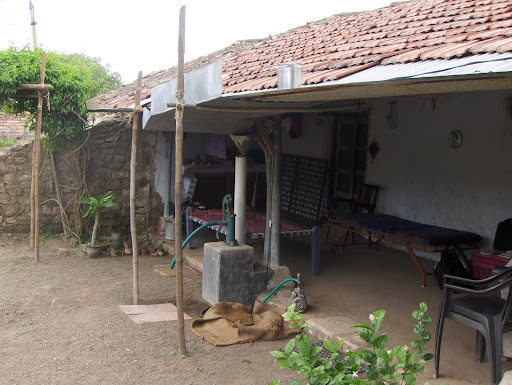
Kapilbhai and I stayed in Chetanyabhai and Sonalben’s home, which was granted to them by the village so they could live while they ran the development programs. By my observation, it was one of the nicer homes in the village. The structure was half roofed rooms and kitchen, half open garden with a bathroom outhouse in the far corner. The first thing I noticed was the flooring. Like in any Indian household, there was a threshold where you remove your shoes. But what you walk barefoot on isn’t flooring or carpet… it’s dirt! It consisted of a rocky sand which was quite uncomfortable for me to walk over. The roofed part of the home had cow dong floors, which was much nicer, though I never adjusted to the fact that spilling water on the floor was damaging to it. But in both cases, it was quite a change from what I’m used to.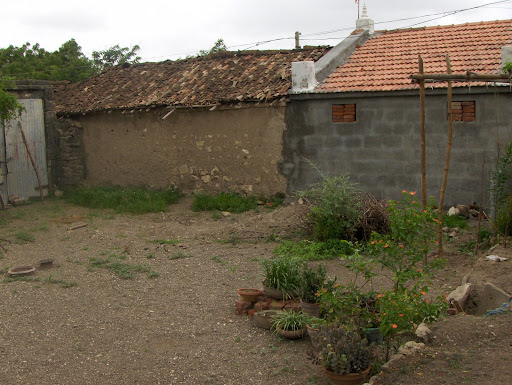
Another interesting part of the rural home is the dining room. Sonalben cooks in a tiny, and I mean tiny, kitchen area where there is just enough room for a small gas stove and an old dusty cupboard where she keeps all her ingredients. In the corner was a pit for washing vessels. We sat down to eat on the cow dung kitchen floor. What a use of space! In America we have separate rooms for different activities; here we multiplexed about 25 square feet of space in 3 different ways: cooking, eating, and washing.
Eating
This deserves its own description. Eating in a rural home is a unique experience. First is the fact that you’re sitting on the ground, cross-legged. This is not too new for me and many of you readers, but I’ve never found it completely comfortable. For example I always end up spilling on myself and walking around with food stains on my pant legs, and you can’t tell me it’s easy to spoon liquid into your mouth if you need to take the spoon from ground level to mouth level.
Besides sitting on the floor, the next feature of any village meal is the flies. During the day hours (lunch), flies come in swarms while you eat, getting on the food, utensils, and containers. Sonalben told me that when you eat in the gaam, you use both hands; the right to take food and the left to constantly swat flies. And literally, you sit there moving your hand back and forth for the entire meal. Villagers probably don’t even notice, but to an outsider like me, that was an adjustment.
Food served was simple, basic, nutritious food. Remember that these are farmers, so they eat hearty. Bajra rotlas as thick as your palm are commonly served as a farmer’s specialty. Also there are serious quantity of milk products consumed. At every meal I was served thick milk, makhan (butter), buttermilk, or chaas, and everything was loaded with ghee. I guess that’s how the farmers get their strength. There was also always a big pile of gore (sugar), pickled mango, and salted chilli peppers.
No Soap
One habit I don’t think I can get used to in the village is no use of hand soap! Before or after meals, even after using the toilet. There was not a bar in sight. Luckily I had brought my own, but my hosts and Kapilbhai carried on without it. I wasn’t sure what to make of this. Obviously, villagers are around dirt more often and may have developed the immunities to the germs, but isn’t it basic hygene to use handsoap after using the bathroom, especially desi style?
Brushing teeth
I thought it was curious that when brushing my teeth in the mornings, Sonalben asked me to spit near a tree growing in her garden. Not sure why, but interesting
The Roads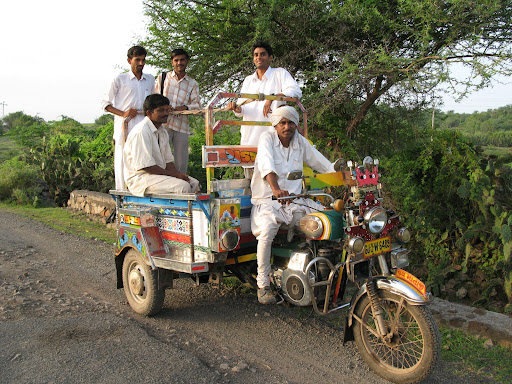
There are no smooth roads in rural areas. Combining this with the fact that you’re usually travelling them on the back of some vehicle or other with no padding, your ass is not happy after 15 minutes. I only felt the pain a day after I got back, but it was there. The vehicles are obviously multipurpose: can transport goods, people, animals, and of course Indians no how to pack them in. Kapilbhai told me this type of vehicle could fit 25 people.
Sleeping
Beds were a rare luxury. I saw that people mostly slept on thin floormats. At Sonalben’s, we slept on thin cushions out in the open air, with mosquito nets. It was nice, not hot at all. 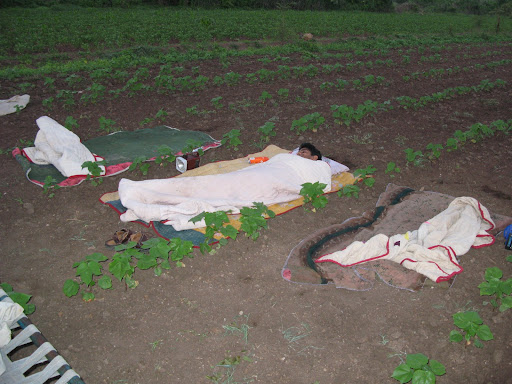 The grand achievement of the weekend was the night we spent out on a farmer’s land itself. Yes, I took a dirt nap, complete with a dirt pillow. My bedmates were some young cotton plants. Don’t worry folks, they were organic (the only organic farm in the locality). It was a wild idea to me to be sleeping out in a farm field right on the dirt, but I’m glad I did it just to say I’ve had the experience. I think we were lucky that there was a nice breeze that night that kept it cool and mosquito free. I slept without interruption. In the morning, I did my business out in the open next to a cactus patch (no injuries were suffered). While I was going two farmers walked by on the road about 100 feet away, catching me in the act. I was mildly embarrassed but then I figured that the sight was nothing they hadn’t seen a million times. Gotta love the rural life.
The grand achievement of the weekend was the night we spent out on a farmer’s land itself. Yes, I took a dirt nap, complete with a dirt pillow. My bedmates were some young cotton plants. Don’t worry folks, they were organic (the only organic farm in the locality). It was a wild idea to me to be sleeping out in a farm field right on the dirt, but I’m glad I did it just to say I’ve had the experience. I think we were lucky that there was a nice breeze that night that kept it cool and mosquito free. I slept without interruption. In the morning, I did my business out in the open next to a cactus patch (no injuries were suffered). While I was going two farmers walked by on the road about 100 feet away, catching me in the act. I was mildly embarrassed but then I figured that the sight was nothing they hadn’t seen a million times. Gotta love the rural life.
The Kids
Rural children are bashful but playful. Not sure if I described a dwarf or a human being with that but that's the best I can do in a sentence. They are shy but at the same time mischievous.

They are noticeably well-behaved and disciplined but at the same time know how to play, sing, run around, and generally have all the fun any other kid has. The kids in Dheduki, as I mentioned, are also creative and quite talented with their arts and crafts. The computer that they were able to partially fund is mostly used for Microsoft Paint. It's worth noting that rural Indian kids (I've now seen them in two different villages and this is true in both) like drawing things like trees and hills and sunsets and flowers, whereas last I checked American kids like to draw people shooting guns and mansions with their family in front of it.
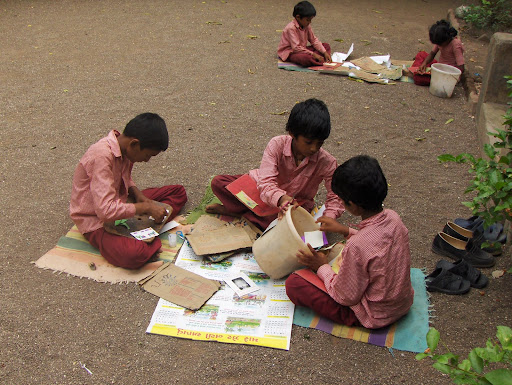
One of the kids got really obsessed with my laptop. I couldn't make him understand that even though the keyboard and monitor are connected and it's small and thin, my computer did everything his desktop computer did so there was nothing special to see. Mostly I think he was fascinated with my typing. Not many people in Dheduki (maybe one) knew how to touch type, and not even that one person, Chetanyabhai, was what you would consider a proficient typist. The youngster was blown away by how fast I did stuff, and stood peeking over my shoulder for a solid hour watching me prepare powerpoint slides, explaining that he was learning how to use the computer by watching me. Every so often he would ask me when I was going to paint something, almost like he understood the main use of a computer to be to draw rainbows and apple trees. He also got a kick out of me saving a file with his name onto my desktop. When I did that he ran and got all of his friends and pointed it out proudly to them. These kids are just so sweet. Though it was a little frustrating trying to work with him watching and asking a lot of questions, it's really very hard to put a lid on the pure-hearted curiosity of an innocent kid getting a rare glimpse of technology. In retrospect it was my privilege to show him.
The Warmth of Rural PeopleAs we were driving away from Dheduki to catch our bus home, just having said our goodbyes to our hosts and other friends, this was the first comment I made to Kapilbhai. There is a special warmth in these people. They are all heart. When we went on our farm visit walk, we would be greeted by a gentle hand up and a "Ram, Ram". When you shake hands with a farmer, he cups your hand with both of his, clasping it loosely in a way that was like they didn't want to offend or hurt you with a firm grip. When it came time for a meal, they would practically drag you into their homes and offer you all kinds of food that they probably were keeping for themselves. Even when we brought out or tiffins out in the farms, they would bring more food like chillis and shaak and milk to supplement your already plentiful supply. In fact Kapilbhai calculated for this and was hoping we'd eat at a farm where he didn't know the farmer. He knew they would go all-out with food and other things which he didn't want them to take the trouble to do.
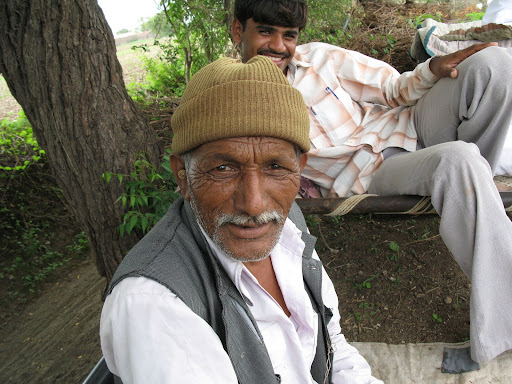
But it didn't work out that way. We ended up taking our lunch at this farmer's plot (pictured), who seemed to have an old relationship with Kapilbhai. He was hilarious. He would rip on Kapilbhai for not eating enough and not drinking chai, then on me for being from America. He had a loud, raspy voice and would just crack jokes and put everyone in good spirits. He even took my camera and delightedly snapped a few. He was very proud of one of his cows and had me take pictures of it from like 10 different angles. He mentioned that some Indicorps volunteers had come to stay at his farm recently and how
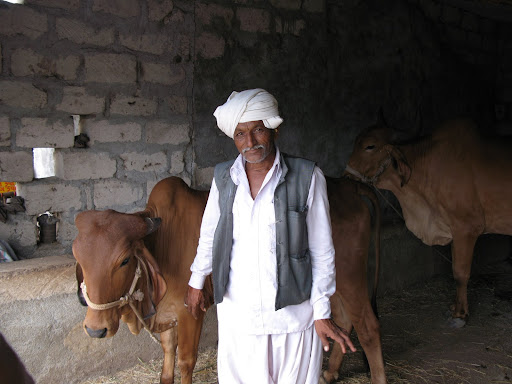
they tried to do farmwork but it didn't quite work out. His whole vibe seemed to say "you westerners think you're all modern and smart, but this is the real life". I couldn't really argue with that.
One last memorable episode was dinner the night of the walk at Samatbhai's home. After eating, we laid out in his yard looking at the night sky which was absolutely lit up. It was a Yosemite-level beautiful starry sky. So Samatbhai, one of Gujarat's most advanced organic farmers but who has zero formal education, started asking Kapilbhai and I about the stars, how far away they are from Earth, how the planets revolve around them, the concept of a light year, the debate of extraterrestrials, and other things a grade-schooler may ask his parents on a camping trip. I just loved it. His reactions to our descriptions of a universe of unfathomable size, diversity and mystery were so child-like and he was just in awe of everything we said. It was just a great moment being in that company... I could have sat there talking to him about the stars forever.
And actually that night when we took the dirt nap he and I stayed up talking about America, what people do for money there, whether they are happy, whether Indians have a community, what the farms are like, and other things. His curiosity was insatiable. It was such a great experience getting to know him and the other farmers in Dheduki and Dharai. I only hope that I can hold on to that warm feeling that they left in me and pay it forward tomorrow and maybe even forever. If I'm lucky.
 I have been in India for over a month, marking the most time I have been away from home for as long as I can remember, likely for the longest period in my life (I don't count college because the Bay Area is like home since I grew up there partially). The other day it caught up to me and I started feeling homesick.
I have been in India for over a month, marking the most time I have been away from home for as long as I can remember, likely for the longest period in my life (I don't count college because the Bay Area is like home since I grew up there partially). The other day it caught up to me and I started feeling homesick.

